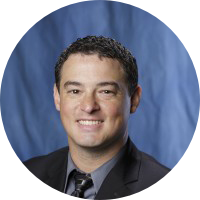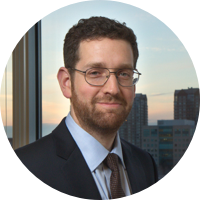Fellowship Directors
Fellowship Directors

Helena Knotkova, PhD
is the Director of Clinical Research and Analytics for the MJHS Institute for Innovation in Palliative Care, in New York City. She is also Founder and Past Chair of the Special Interest Group on Neuromodulation (SIGN) of the International Association for the Study of Pain, and serves in the Neuromodulation Appropriateness and Polyanalgesic Consensus Committee of the International Neuromodulation Society. Dr. Knotkova is also Co-Director of Neuromodec tDCS Workshop, and editor of several textbooks for medical professionals, including Textbook of Neuromodulation, and serves in editorial boards of numerous biomedical journals, such as the Journal of Pain Management, Open Pain Journal, Analgesics, Journal ISRN Pain, Journal of the Analgesics, World Journal of Anesthesiology. Dr. Knotkova’s extensive experience with tDCS includes more than 1,000 tDCS applications in patients with chronic illness in clinical and research settings. Dr. Knotkova received her PhD in biological sciences/neuroscience from the Institute of Physiology of Czech Academy of Sciences, in Prague and doctorate in psychology from Charles University, in Prague, and completed a Fulbright Scholarship at the College of Physicians and Surgeons at Columbia University, New York.

Adam Woods, PhD
is Assistant Director of the Center for Cognitive Aging and Memory in the Institute on Aging at the University of Florida. He is also the Director of the Neurophysiology and Neuromodulation Research Core in the Institute on Aging, as well as an Assistant Professor in the Department of Aging and Geriatric Research and Department of Neuroscience at the University of Florida. Dr. Woods is the co-founder and Director of the internationally offered Neuromodec tDCS Workshop, a workshop aimed at practical education of researchers and clinicians in the reproducible application of tDCS. Dr. Woods received his PhD in Cognitive Neuroscience from the George Washington University. He is a past recipient of the National Science Foundation Graduate Research Fellowship and was recently awarded the Young Investigator Award in Neuromodulation at the NYC Neuromodulation Conference 2015 for his research and educational efforts in the field. He has published and presented at various international conferences on topics related to non-invasive brain stimulation, neuroplasticity, neuromodulation, and adjunctive cognitive interventions with tDCS in aging populations.

Marom Bikson, PhD
is a Cattell Professor of Biomedical Engineering at The City College of New York (CCNY) of the City University of New York (CUNY) and co-Director of the Neural Engineering Group at the New York Center for Biomedical Engineering. The translational R&D activity of his group spans pre-clinical studies, computational models, device design and fabrication, regulatory activities, and clinical trials. Technologies developed by his group are in clinical trials in over 100 medical centers and include neuromodulation interventions for neuropsychiatric disorders, intra- and post-operative sensors, patient compliance tools, and surgeon training simulators. Dr. Bikson has published over 200 papers and book-chapters and is inventor on over 30 patent applications. He is known for his work on brain targeting with electrical stimulation, cellular physiology of electric effects, and electrical safety. Dr. Bikson co-invented High-Definition transcranial Direct Current Stimulation (HD-tDCS), the first non-invasive, targeted, and low-intensity neuromodulation technology. Dr. Bikson consults for medical technology companies and regulatory agencies on the design, validation, and certification of medical instrumentation. Prior to becoming faculty at CUNY, Dr. Bikson was a research fellow at the University of Birmingham Medical School, UK and a Research Associate at Sontra Medical LLC, in Cambridge Mass. Dr. Bikson received a Ph.D. in Biomedical Engineering from Case Western Reserve University, in Cleveland OH, and a B.S. in Biomedical Engineering from Johns Hopkins University, Baltimore MD